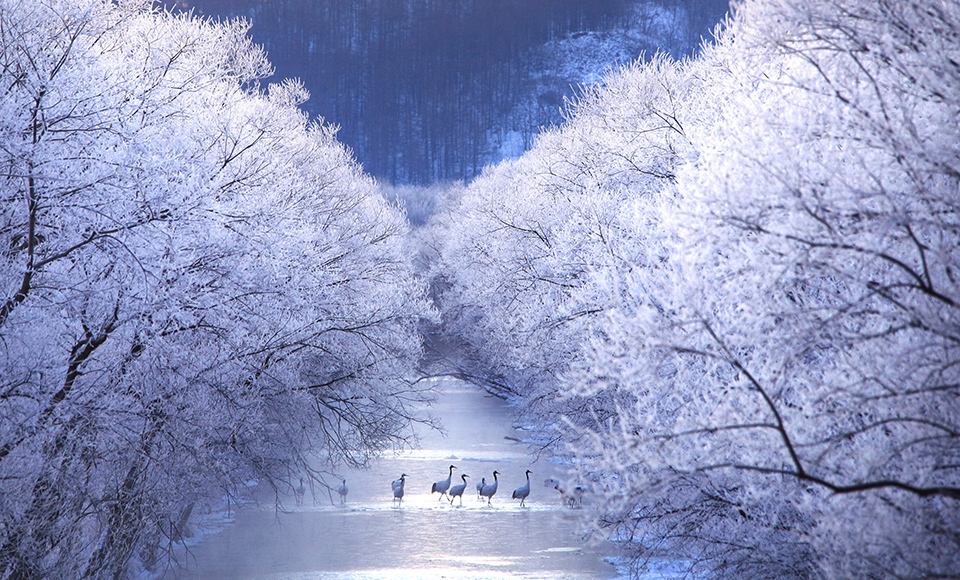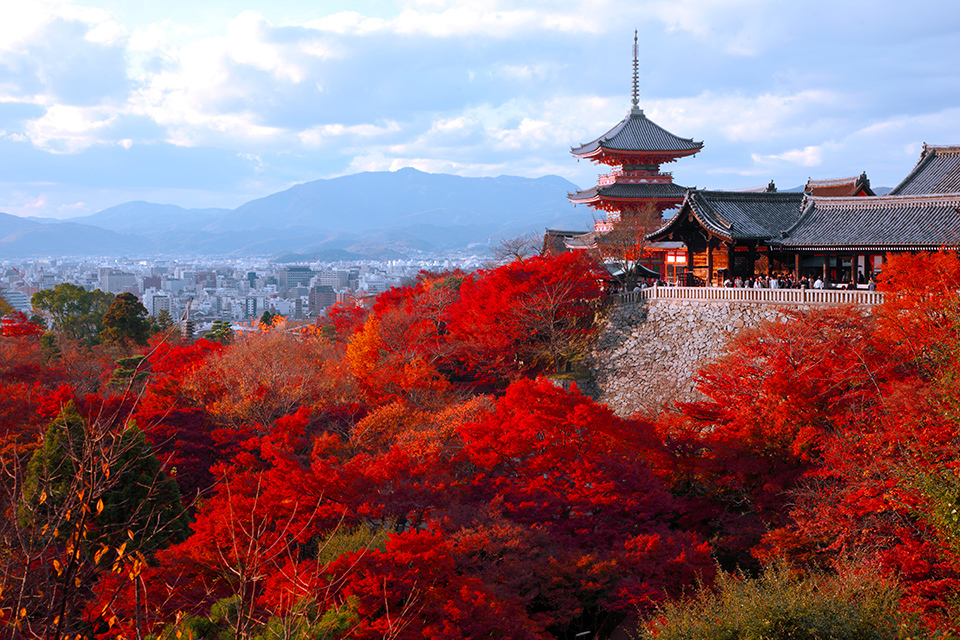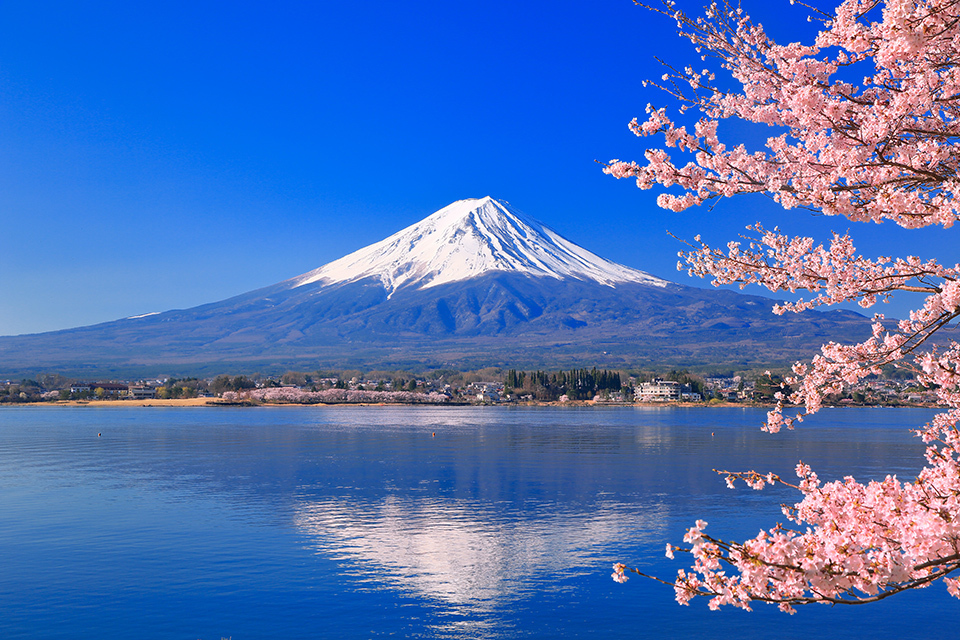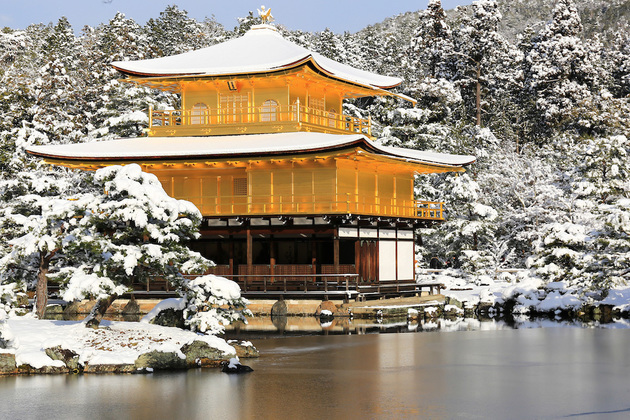Japan opened its borders to visitors in October 2022, boosting the tourism industry. Travel agencies are trying to satisfy the demand for both cheap and expensive Japan.
When British travel agency employee James Kent was asked in mid-November last year to test an overnight stay at a Japanese castle, he wondered if any of his customers would actually pay for such accommodations. After all, the price tag was a hefty 1.1 million yen ($8,400) a night for two guests, Nikkei Asia writes.
Kent was greeted by the blaring of a triton shell horn and the beating of drums. A squad of armor-clad samurai saluted him and his party with gunfire, treating him them like the lords of the castle. "It was overwhelming," Kent said, tears welling in his eyes, recalling a scene like something out of a samurai movie.
Ozu castle
The castle, a restored wooden keep in Ozu, a town of around 39,000 on the island of Shikoku, is open to overnight guests -- provided they can shell out the cash. Despite the hefty price tag, 11 groups have booked stays from March to June. Two are from overseas. There are people waiting for a cancellation during cherry blossom season.
In Ozu, which once flourished as a castle town, there are many old houses in private hands. The city government has leased or purchased some that were uninhabited, turning them into hotels. The goal is to take advantage of the area's cultural assets, working in tandem with local businesses. The castle stay packages, which went on the market in 2020, are just one of Ozu's (high end) tourism offerings.

Post-COVID tourism
According to the Japan National Tourism Organization, there were 1.37 million overseas visitors to Japan in December last year, topping the 1 million mark for the first time since February 2020.
Japan largely opened its borders to visitors from abroad last October, kick-starting the tourism industry. There are still few travelers from the Chinese mainland, which is battling a large number of COVID-19 infections. But overall, the numbers are recovering.
Before the pandemic struck, the number of foreign tourists visiting France exceeded the country's population by 40%; in Spain it was 80% higher. If Japan were to host overseas tourists at a similar rate to France, it would have more than 150 million foreign visitors annually.
Japan welcomed more than 31 million foreign tourists in 2019, an all-time high. Japan has high growth potential, given the examples of the European tourism powerhouses.

No more cheap destinations?
Japan's decades of deflation have created the image of Japan as an inexpensive destination, helping to draw overseas travelers before the pandemic. Now it is starting to cater more to well-heeled tourists who are willing to splash out on luxury goods and services that most Japanese would balk at.
Sake
Koichi Miyashita, senior managing director of Miyashita Sake Brewery, in the western Japanese city of Okayama, wanted to sell his company's premium junmai daiginjo sake, called Miyashita Estate, at airport souvenir shops. Last autumn, he approached shop operators about carrying his company's brew.
The sake is priced at 100,000 yen for a 720-milliliter bottle, excluding consumption tax. It is made from the Omachi brand of sake rice, which is grown in Okayama prefecture. The rice used in the sake is milled to just 7% of the original grain. The bit that remains after milling is far smaller than that used in standard junmai daiginjo sakes, which are milled to less than 50% of the original grain. The rice that goes into Miyashita Estate is milled down to the very heart of grain to ensure the purity of its flavor.
Since around last summer, Miyashita has taken more calls from trading companies and other customers about products aimed at wealthy drinkers. The question on their minds: "Which is the most expensive sake?"
He was asked by a customer in China whether Miyashita Estate could be put in crystal bottles if several thousand were purchased. Miyashita is seizing his chance to sell his pricey sake to foreign tourists, selling them on his company's exacting brewing techniques.

Hotels become expensive too
Lodgings, too, are going upmarket. Palace Hotel Tokyo, located near the Imperial Palace, offers large suites for 280,000 yen and above. This has helped raise the hotel's average room rate to its highest level since its reopening last December, following a renovation in 2012.
"We no longer aim at high occupancy rates. Competition has begun focusing on meeting two kinds of demand: 'inexpensive Japan' and for 'expensive Japan.'",
said Daisuke Yoshihara, president of the hotel operator.






